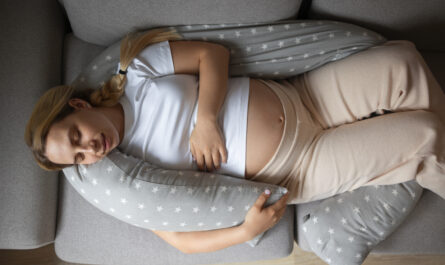Nocturnal leg cramps, also referred to as nighttime muscle cramps, are sudden, involuntary spasms or tightening of muscles in the leg, often affecting the calf. These cramps can range from mild discomfort to intense pain and are known to disrupt sleep, leaving individuals frustrated and in need of relief. Although they are common, nocturnal leg cramps remain somewhat mysterious, with various factors and possible causes contributing to their occurrence. Understanding what causes these cramps and how to prevent and treat them is essential to ensuring restful sleep and overall well-being.
In this article, we will examine what nocturnal leg cramps are, their possible causes, prevention strategies, and the available remedies to manage this condition effectively.
What Are Nocturnal Leg Cramps?
Nocturnal leg cramps are intense muscle contractions that primarily occur at night while a person is at rest, often during sleep. They usually target the calf muscles, although they can also affect the thighs and feet. These cramps can vary in duration, lasting from a few seconds to several minutes, and can be so intense that they lead to a lingering soreness even after the cramp subsides.
One of the notable features of nocturnal leg cramps is their sudden onset and the pain they cause, which can leave the affected muscle feeling hard and tense to the touch. While cramps can also occur during the day, nighttime cramps are particularly distressing because they interrupt sleep, leading to fatigue and impacting overall quality of life. Unlike restless leg syndrome, which also affects sleep, nocturnal leg cramps are painful and cause a strong muscle contraction rather than an urge to move the legs.
Common Causes of Nocturnal Leg Cramps
Although the exact cause of nocturnal leg cramps remains unclear, researchers have identified several potential factors that may contribute to their occurrence:
- Muscle Fatigue and Overuse: Muscle fatigue is one of the primary contributors to nocturnal leg cramps. Individuals who engage in physically demanding activities or perform repetitive leg movements throughout the day are more susceptible. These activities can lead to muscle fatigue, which, combined with the relaxed state of sleep, may trigger nighttime cramping. For example, athletes, dancers, or workers who stand for prolonged periods often experience nocturnal leg cramps due to muscle strain.
- Dehydration: Proper hydration is essential for maintaining muscle health. Dehydration can lead to an imbalance of electrolytes like potassium, sodium, and magnesium, which are crucial for muscle function. When these electrolytes are depleted, muscles may become more prone to spasms and cramps. Those who do not drink enough water, especially after physical activity or during hot weather, are at a higher risk of experiencing nighttime cramps.
- Electrolyte Imbalance: Electrolytes, including potassium, calcium, and magnesium, play a vital role in muscle contraction and relaxation. An imbalance in these electrolytes, whether due to poor diet, excessive sweating, or specific medications, can lead to muscle cramps. Magnesium deficiency, in particular, has been linked to an increased likelihood of leg cramps, as it directly impacts muscle relaxation.
- Circulatory Problems: Poor circulation can contribute to muscle cramps, particularly in the lower legs. Conditions like peripheral artery disease (PAD) or chronic venous insufficiency may restrict blood flow to the legs, depriving muscles of oxygen and essential nutrients. This can lead to muscle fatigue, which increases the likelihood of cramping, especially at rest.
- Nerve Compression and Related Issues: Nerve compression, especially from conditions like lumbar spinal stenosis or sciatica, can impact the nerves that serve the leg muscles, leading to increased muscle tension and spasms. Individuals with these conditions may find that certain positions or movements exacerbate cramping, particularly when lying down or trying to sleep.
- Pregnancy: Pregnancy is another factor that can increase the likelihood of nocturnal leg cramps. Hormonal changes, additional weight, and pressure on blood vessels in the legs can contribute to poor circulation and cramping in pregnant women. Furthermore, pregnant women are more likely to have deficiencies in electrolytes like magnesium and calcium, which are essential for muscle function and cramp prevention.
- Aging and Muscle Loss: Muscle mass naturally decreases with age, leading to increased muscle fatigue and reduced flexibility, both of which can increase cramp susceptibility. Older adults also experience a decline in nerve function, which can contribute to the involuntary muscle contractions that cause cramps.
- Medications and Health Conditions: Certain medications, including diuretics, statins, and blood pressure medications, can contribute to nighttime cramping by impacting muscle and electrolyte balance. Additionally, medical conditions like diabetes, liver disease, and kidney disease may contribute to cramps due to disrupted nerve or muscle function.
Prevention Strategies for Nocturnal Leg Cramps
While there may not be a one-size-fits-all solution, there are several strategies that can help prevent or reduce the frequency and severity of nocturnal leg cramps:
- Stay Hydrated Throughout the Day: Drinking plenty of water can help maintain the balance of electrolytes necessary for proper muscle function. To prevent dehydration-related cramps, try to stay hydrated throughout the day rather than drinking large amounts right before bed, which can interrupt sleep.
- Incorporate Stretching into Your Routine: Gentle stretching exercises before bed can help loosen and relax muscles, reducing the risk of cramping. Focus on calf stretches, such as standing a few feet from a wall and pressing your hands against it while keeping one leg extended behind you. This stretch targets the calf muscles, helping them stay relaxed throughout the night.
- Improve Your Sleeping Position: Certain sleeping positions can increase pressure on the legs and limit circulation. Try sleeping on your back with your legs slightly elevated on a pillow to improve blood flow. Avoid sleeping in positions that may compress your legs or feet.
- Warm Compresses and Massage: Applying heat to the legs before bed can help relax the muscles. Using a heating pad, warm towel, or taking a warm bath can soothe tense muscles and may reduce the likelihood of cramps. Massaging the calves before bed also improves circulation and eases muscle tension.
- Incorporate Electrolyte-Rich Foods: A diet rich in magnesium, potassium, and calcium can support muscle health and reduce the risk of cramping.Nuts, bananas, and leafy greens are all great providers of these vital minerals. If you get cramps, think about taking a magnesium supplement, but get medical advice before beginning any new supplement.
- Consider Footwear Choices: Proper footwear can help prevent cramping by providing adequate support and reducing strain on the leg muscles. If you’re on your feet for long periods, invest in cushioned insoles or supportive shoes to help minimize muscle fatigue.
- Engage in Low-Impact Exercise: Regular exercise improves muscle tone and reduces cramp frequency. Focus on low-impact exercises like walking, swimming, or cycling to strengthen your legs without overexerting the muscles.
- Evaluate and Adjust Medications: your doctor testify you feel that a medicine is causing nocturnal cramps, see your healthcare provider to discuss alternatives. Some medications may be available in a different form or dosage that is less likely to cause cramping.
Remedies for Managing Nocturnal Leg Cramps
If a nocturnal cramp occurs, there are a few steps you can take to relieve the discomfort and help the muscle relax:
- Stretch the Affected Muscle: As soon as a cramp begins, try to stretch the affected muscle. To relieve a calf cramp, move your toes upward toward your knee while keeping your leg straight. This action stretches the muscle and may help it relax more quickly.
- Massage the Muscle Gently: Massaging the cramped muscle with your hands can help increase blood flow to the area, encouraging the muscle to relax.
- Apply Heat or Cold: A warm compress can help relax the muscle, while a cold pack may reduce pain and inflammation if the muscle feels sore. Alternate between hot and cold as needed.
- Move Around if Possible: Standing up and walking on your heels can help alleviate a cramp by activating the opposing muscles in your leg, which helps the cramped muscle release.
When to Seek Medical Advice
While nocturnal leg cramps are often harmless, they can sometimes signal underlying health issues that require attention. If cramps are frequent, severe, or interfere significantly with your sleep and daily activities, consult your healthcare provider. Testing may include blood work to check electrolyte levels, nerve function tests, or vascular studies if circulation issues are suspected.
Conclusion
Nocturnal leg cramps are a common and often frustrating experience, but understanding their causes can help in managing and preventing them. By staying hydrated, stretching, adjusting your diet, and making lifestyle changes, you can significantly reduce the frequency of nighttime cramps. Although nocturnal leg cramps can occur in people of all ages, older adults and those with underlying health conditions may be more susceptible.
Managing nighttime cramps involves a proactive approach that includes both preventative strategies and immediate relief techniques. For those with persistent or severe cramps, consulting a healthcare provider can help identify any underlying causes and provide tailored treatment options. With the right care and strategies, it’s possible to enjoy restful, cramp-free sleep and maintain muscle health for the long term.



